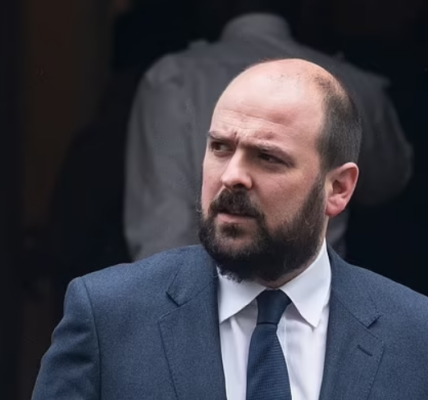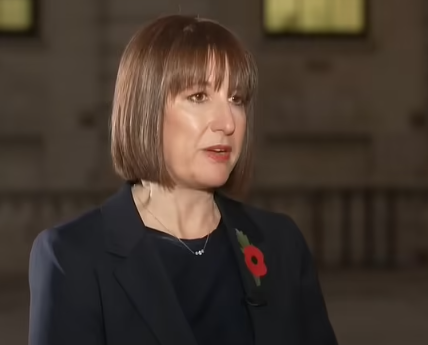Labour own goal? David Beckham set to star at elite Davos gathering – but Chancellor Rachel Reeves doesn’t have a speaking slot on the main agenda_Nhy
Rachel Reeves is heading for the elite World Economic Forum tomorrow despite not having a spot on the main agenda.
The Chancellor is pledging to ‘showcase the UK’s investment offer, including its talented people and stable economy’ at the annual gathering in Davos.
However, concerns have been raised that neither Ms Reeves, or Business Secretary Jonathan Reynolds and investment minister Baroness Poppy Gustafsson, have been given prime slots. Keir Starmer is not going to the event.
By contrast former footballer David Beckham will make two significant appearances tonight and tomorrow, having been honoured by the WEF for his ‘cultural leadership’. Beckham has been a Unicef Goodwill Ambassador for two decades.
EU commission chief Ursula von der Leyen, the PM of Malaysia and the Iranian vice-president for strategic affairs are also giving keynote speeches.

Chancellor Rachel Reeves is pledging to ‘showcase the UK’s investment offer, including its talented people and stable economy’ at the annual gathering in Davos

Former footballer David Beckham will make two significant appearances tonight and tomorrow, having been honoured by the WEF for his ‘cultural leadership’

The annual meeting of the WEF is happening in Davos, Switzerland, this week
Allies have denied that Ms Reeves has been snubbed, arguing that she wants to focus on getting her message across to business leaders in private.
The Chancellor is set to speak at the Country Strategic Dialogue with 80-100 global CEOs and business leaders tomorrow. She will also take part in a CBI lunch panel, a Wall Street Journal event and Bloomberg fireside chat.
Downing Street insisted she will have meetings with a ‘wide range of CEOs and business leaders’, including Jamie Dimon, CEO of JP Morgan and Jo Taylor, President of the Ontario Teachers’ Pension Plan.
Mr Reynolds is due to meet EU commission vice president Maroš Šefčovič and the Vice-Chancellor of Germany among others.
The ministers are trying to woo investment in major infrastructure and green energy projects.
However, the reception is likely to be more muted than last year, when Ms Reeves toured the summit as shadow chancellor pushing Labour’s growth plan.
Since then Labour’s £40 billion tax-raising Budget has been blamed for crushing growth and fuelling a bond market sell-off that has left Ms Reeves scrambling to balance the books.
Beckham is set to speak this evening as the conference gets under way, and again tomorrow morning at an ‘in conversation’ event.

Beckham has been a Unicef Goodwill Ambassador for two decades

University tuition fees to pass £9,500 per year as Labour confirms 3.1% increase to cost of higher education from September
University tuition fees are to pass £9,500 from September, the Government confirmed today.
Education secretary Bridge Phillipson said that the maximum annual fee ceiling would rise 3.1 per cent in line with inflation.
From September fees for English institutions will hit £9,535 for a standard full-time course and £7,145 for a part-time course.
But it risks putting her on a collision course with universities, who previously warned that such an increase was not enough to alleviate ‘severe’ financial pressures.
When plans for the rise were first revealed in November, the Universities and Colleges Employers Association (UCEA) warned that changes announced in the Budget around employers’ national insurance (NI) contributions would cost the sector £372 million and amplify the funding challenges facing institutions.
But in a confirmatory written statement to MPs today, Ms Phillipson said: The 3.1 per cent increase to maximum fees for 2025/26 will help cement higher education providers’ roles as engines of growth in the heart of communities across the country and will mean they can continue to deliver high quality education that boosts the life chances of those who choose this path.’
If the Government chooses to increase fees in line with inflation each year, the maximum fee could reach £10,680 in 2029/30, according to the Institute for Fiscal Studies (IFS).
It also means that England has the highest higher education costs in the UK. Fees were frozen at £9,250 for the previous eight years.

Education secretary Bridge Phillipson said that the maximum annual fee ceiling would rise 3.1 per cent in line with inflation.

It also means that England has the highest higher education costs in the UK.


